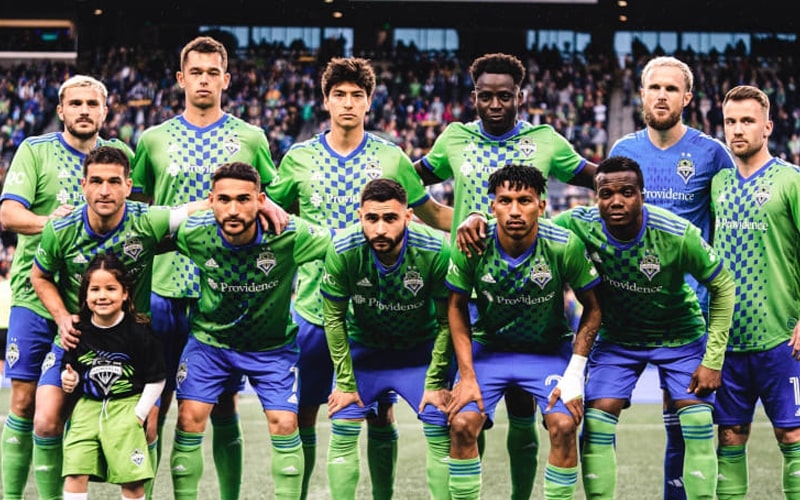A Growing Attraction for International Talent
The MLS has made significant strides in attracting international talent in recent years. This influx of talent has not only raised the level of competition but also contributed to the league’s growth and global appeal. Some notable international players who have joined MLS include David Beckham, Thierry Henry, Zlatan Ibrahimović, and Wayne Rooney, among others.
The attraction of international talent can be attributed to several factors:
- Expanding league: As MLS has expanded to new markets, the need for talented and experienced players has grown. International players often bring a wealth of experience and skill that can help elevate the level of play and draw fans to the stadiums.
- Increased salaries: The growth of MLS has also led to an increase in player salaries, making the league more financially attractive for international players. While still not on par with the top European leagues, MLS offers competitive wages for many players, especially those from regions where soccer leagues are not as well-funded.
- Global exposure: As the league’s profile has risen, so too has its global exposure. International players are increasingly seeing MLS as an opportunity to build their brand and gain exposure in the North American market.
- Lifestyle and opportunities: The United States and Canada offer a high standard of living, safety, and a wealth of opportunities beyond soccer. For many international players, the prospect of living and playing in North America is an attractive proposition.
Challenges International Players Face in MLS
Despite the numerous attractions, international players often face various challenges when transitioning to MLS:
Adapting to a New Culture and Language
One of the most significant challenges for international players is adapting to a new culture and language. This adjustment can be particularly difficult for players who have never lived abroad or do not speak English. Cultural differences can manifest in various ways, such as different training methods, dietary preferences, and social customs. These differences can be overwhelming for some players and may take time to adapt.
The Unique Aspects of MLS
MLS has several unique aspects that can be challenging for international players to understand and adapt to. Some of these unique features include:
- Salary cap: Unlike many other leagues around the world, MLS operates under a salary cap system that limits the amount of money a team can spend on player salaries. This can be a foreign concept for international players and may impact their contract negotiations and expectations.
- Travel demands: MLS teams cover vast distances during the season, with cross-country flights being a regular part of the schedule. This level of travel can be taxing on players, especially those used to European leagues, where travel distances are generally shorter.
- Diverse playing conditions: The United States and Canada have diverse climates and playing conditions, which can pose challenges for international players. They may need to adapt to playing in extreme heat, cold, or altitude, which can affect their performance and recovery.
Building Chemistry with Teammates
Building chemistry with new teammates is a critical part of any player’s success, but it can be even more challenging for international players who may face language barriers or cultural differences. International players must quickly learn to communicate effectively with their teammates, both on and off the field, to build a strong rapport and understanding.
Competing Against Varied Styles of Play
MLS is known for its diversity in playing styles, with teams employing various tactics and formations. This diversity can pose challenges for international players, who may need to adjust their style of play to be effective in the league. They may face more physical or aerial challenges in some matches and tactical battles in others, requiring them to be versatile and adaptable.
Support Systems for International Players
Recognizing the challenges that international players face, MLS clubs have implemented various support systems to help these players acclimate to their new environment and succeed on and off the field.
Language and Cultural Training
Many clubs provide language classes and cultural training for their international players to help them communicate effectively with teammates and staff and better understand the local customs and traditions. This support can be invaluable in helping players adjust to their new surroundings and feel more comfortable in their new environment.
Player Liaisons and Mentors
MLS clubs often assign player liaisons or mentors to help international players acclimate to the team and the league. These individuals can provide guidance on various aspects, such as understanding league rules, managing travel logistics, and connecting with local resources. Mentors are often experienced players who can share their insights and experiences with newcomers, helping them navigate the challenges they may encounter.
Family Support
Recognizing the importance of family in the lives of international players, MLS clubs often extend support to the players’ families as well. This support may include assistance in finding housing, schools, and other resources, as well as organizing social events for players and their families to build connections within the club community.
The Impact of International Players on MLS
The influx of international talent has had a profound impact on MLS, both on and off the field:
- Increased quality of play: The skills and experience that international players bring to the league have helped elevate the overall quality of play in MLS. Their presence has forced domestic players to improve their game and has raised the bar for the entire league.
- Global appeal: As more international stars join MLS, the league’s global appeal and visibility continue to grow. This increased exposure has helped attract more fans, sponsors, and media attention, contributing to the league’s ongoing growth.
- Development of domestic talent: The presence of international players has also had a positive impact on the development of domestic talent. By competing against and learning from skilled international players, young American and Canadian players can develop their abilities and raise their game to new heights.
In conclusion, the journey of international players in MLS is filled with both opportunities and challenges. While adapting to a new league, culture, and playing style can be difficult, the support systems in place and the potential benefits make MLS an attractive destination for talented players from around the world. As the league continues to grow and evolve, the contributions of international players will remain a crucial component of its success.




